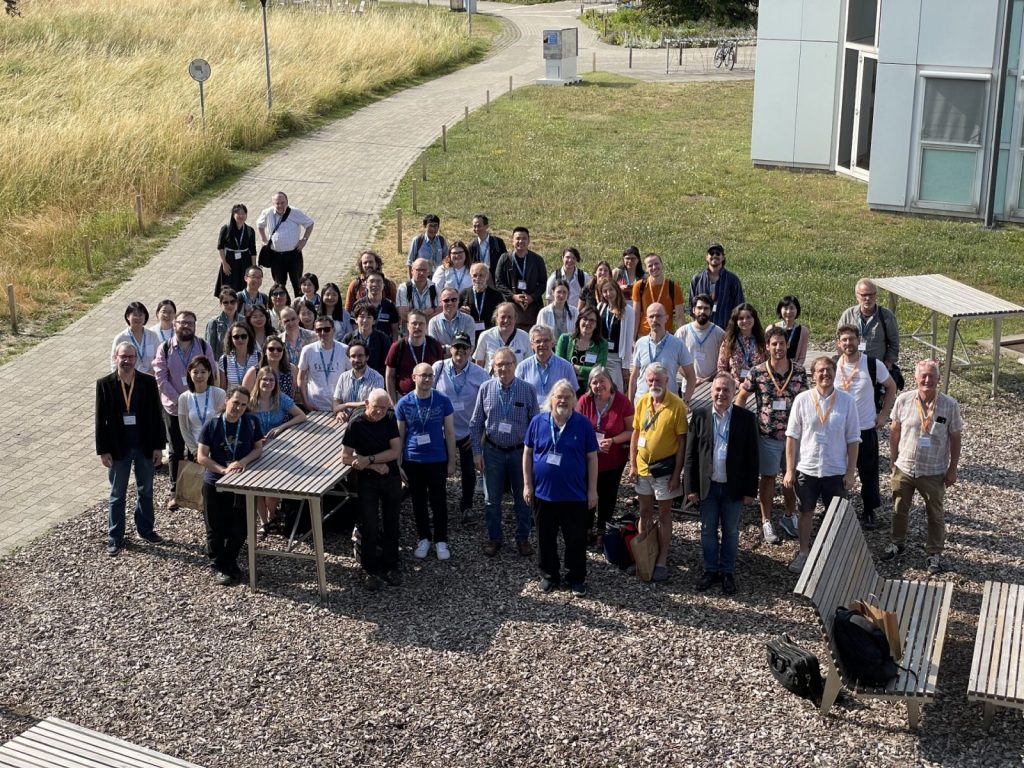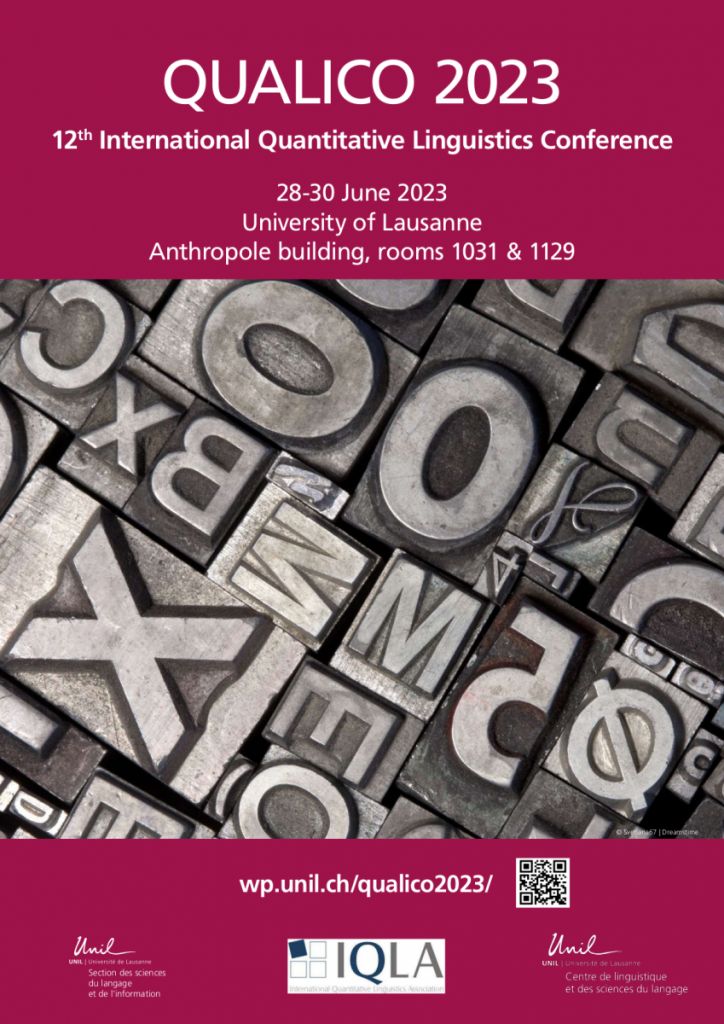Please read IQLA’s position regarding the war in Ukraine
QUALICO 2023
Great talks, friendly participants, and a nice weather. Thank you all for this wonderful edition!

One week before QUALICO 2023!
Be sure the check participation guidelines and conference venue, so that everything runs as smoothly as possible.
The book of abstracts for the conference is also available. No need to print it, you will recieve a printed copy with your welcome bag.
The local committee is thrilled to welcome you in Lausanne very soon!

The conference program is now available
Registration is now open
The registration for QUALICO 2023 is now available. Please fill this form in order to register. Participation fees must be paid before April 30th, 2023.
Call for Papers
The Call for Papers for QUALICO 2023 is open! Please click here for submission guidelines.
Conference announcement
QUALICO 2023, the 12th International Quantitative Linguistics Conference, will take place in Lausanne, Switzerland, on June 28-30, 2023.



QUALICO 2023 is organized by the International Quantitative Linguistics Association (IQLA) and the Department of Language and Information Sciences (SLI) from the University of Lausanne (UNIL).
Topics
All contributions relating to quantitative linguistics and text analysis are welcome. We particularly encourage submissions on:
- Descriptions of all aspects of language and text phenomena, including psycholinguistics, sociolinguistics, dialectology, pragmatics, language typology, language acquisition, language evolution, usage-based approaches, information science, etc., insofar as they use quantitative mathematical methods (probability theory, stochastic processes, differential and difference equations, multidimensional analysis, fuzzy logics and set theory, function theory, etc.).
- Applications of methods, models, or findings from quantitative linguistics to problems of natural language processing, text classification, stylistics, authorship attribution, language teaching, scientometrics, bibliometrics, text mining, language complexity and complex network analysis.
- Methods of linguistic measurement, model construction, sampling and test theory.
- Epistemological issues relevant to quantitative linguistics such as explanation of language and text phenomena, contributions to theory construction, systems theory, philosophy of science.